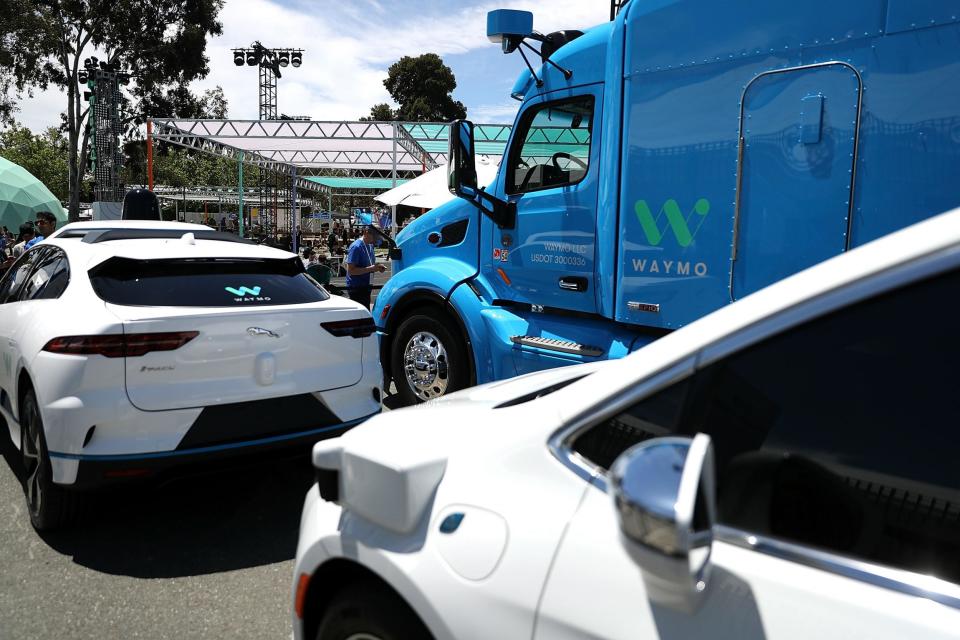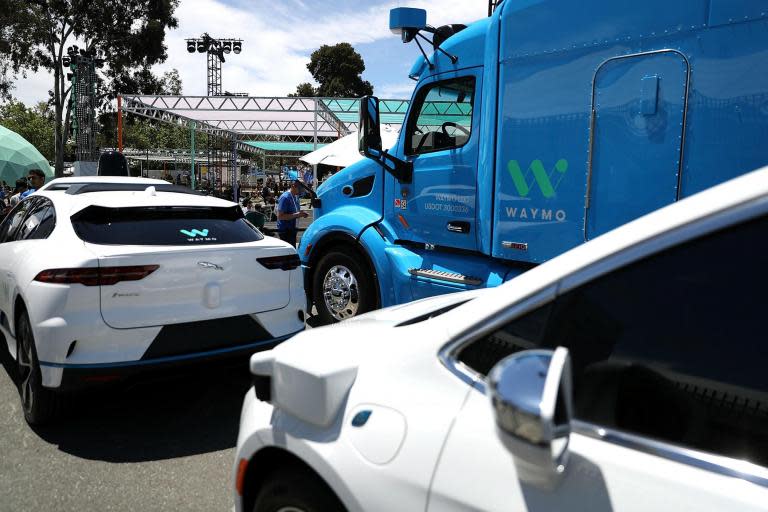Waymo launches first US commercial self-driving taxi service
Almost ten years after Google secretly started work on technology that would allow a vehicle to operate without a human driver, the company has launched the nation’s first commercial self-driving robo-taxi.
Waymo, a subsidiary of Google, introduced a small fleet of ride-hailing vehicles in Phoenix, Arizona, asking people to pay, just as they would to travel by Uber or Lyft. For now, the project will also feature a human driver behind the wheel, just in case the robotic vehicle malfunctions.
“Over time, we hope to make Waymo One available to even more members of the public Self-driving technology is new to many, so we’re proceeding carefully,” Waymo’s CEO John Krafcik, wrote in a blog post about Wednesday’s run-out.
He added: “Almost 10 years ago, we were founded as the Google self-driving car project to explore one simple question: how can we best use fully self-driving technology to make roads safer? We’ve been focused on building the world’s most experienced driver ever since.”
The Associated Press said the debut marked a significant milestone for the Google subsidiary, which started its work amid great secrecy in 2009. Since then, its cars have robotically logged more 10m miles on public roads in 25 cities in California, Arizona, Washington, Michigan and Georgia.
The decision to launch the robo-taxi in Arizona was not a matter of chance. The state has fewer regulations on self-driving cars than most states. Federal guidance on the matter has yet to be put in place.
As it was, the launch in Phoenix was taking place just ten miles from Tempe, where an Uber car using robotic technology hit and killed a pedestrian crossing a darkened street in March. That fatal collision triggered international attention and raised concerns as to whether the technology was truly yet safe.
“I suspect the Uber fatality has caused Waymo to slow down its pace a bit” and use human safety drivers in its ride-hailing service,” Navigant research analyst Sam Abuelsamid told the AP. “If people keep dying, there will be a bigger backlash against these vehicles.”
Google is not the only player in the battle to tap into a potentially huge driverless vehicle market. Uber and Toyota began a partnership to develop such cars in August, despite the deadly incident in Tempe. Meanwhile, Honda made a $2bn investment in General Motors’s driverless technology project in October.
Google service, called Waymo One, will at first only be available to a couple hundred riders, all of whom had already been taking part in a free pilot programme that began in April 2017. It will be confined to a roughly 100-square-mile area around Phoenix.
Reuters said when it took a test ride last week, the journey was “slow and jerky” at times. It said the 15-minute, 3-mile drive cost $7.59, a little more than the $7.22 fare offered by Lyft for the same journey.

 Yahoo News
Yahoo News 

